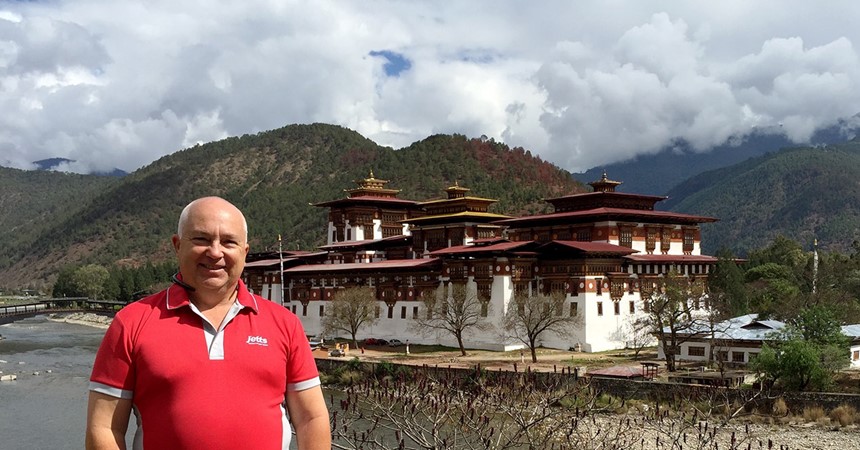It’s an interesting, challenging idea: to think of others before we do something and be prepared to change our behaviour so that others can benefit. Hmm, there was a guy who said something like this about two thousand years ago, but I digress…
Recently I had the opportunity to attend the Macau Dialogue for the Global Coalition for Change (GCC), an organisation that seeks to serve NGOs worldwide by creating a global community for change. This particular meeting concentrated on the needs in the Asia Pacific region as one part of its annual program.
The meeting was established to discuss the opportunities for NGOs, NFPs, commercial business and individuals to collaborate to achieve the UNESCO Millennium Development Goals. After only one year, the network of partnerships is already estimated to have affected nearly 5 million people globally by increasing the combined capacity of individual members.
The group is characterised by:
- Connections
- Collaboration
- Growth
- Harmonisation
- Transparency.
By aligning with the various national and UNESCO Education For All priorities, the GCC is guided to support the marginalised communities in the various focused projects without duplicating effort.
So the challenge was to think globally, act locally and change personally.
Over the last three years my own journey illustrates this principle. Let me share a story, from Africa to aquaponics to Asia to Tasmania. In 2012, I was invited to Kenya to conduct classes in computer skills. The effect of the previous colonisation was still prevalent with most farms growing maize, sugarcane or both, leaving little room for a good variety of vegetables, although the population seemed happy with ugali (corn bread) and sukamawiki (fried spinach). This bothered me so much that on my return to Australia I began researching better ways to produce food in a more controlled and systematic way, particularly when rainfall is quite seasonal and destructive. The research revealed aquaponics - a method of recycling water in a fishpond through a grow-bed, fertilising the plants and coming back to the tank as clean water. This was so exciting that I enthusiastically built a system in my back yard using just a few readily available items. It all took only a couple of hours to build.
This one-metre-square little garden, plus 20 fish and two yabbies, fed our family for a year, using only 2,400 litres of water and producing tomatoes (a water-hungry plant), peas, beans, lettuce, bok choy and cucumbers, with some wastage through evaporation. This method uses only one-tenth of the water required for normal farming and produces five times the quantity of food-bearing crops in the same time.
Early in 2015, I was travelling in Bhutan, a beautiful country racked with growing pains. The cities are growing faster than the infrastructure can sustain and the old problem of sewage and food security looms: too much of one (untreated) and not enough land to grow the other. Bhutan’s farming area is only 2.9% of the country, with the rest being mountains or rivers.
So in both Africa and Asia, the opportunity and need exist for aquaponic agriculture to provide food security while supporting infrastructure and providing clean water.
Back in Australia, I had enthusiastically shown my garden to everyone! Some asked for assistance to build their own, resulting in more little ‘farms’. People talk.
In May 2015, I received a phone call from an organisation in Tasmania asking if I could help with another little “aquaponics thing”? They had been given an old garden nursery and had heard about this idea. The process of restoration for the decrepit nursery garden was begun and a week later saw the installation of the first fish tank - an 11,000 litre monster. This tank can contain a few hundred trout which will support over 168 square metres of grow beds, catering for a commercial size kitchen, supplying an international school where aquaponics will be taught to teams going out to build systems and teach in developing nations. The physical size of the garden is such that the aquaponics system can easily expand to provide even more food.
The old adage, “Learn, do, teach” rings true.
A long time ago I ran computer classes in King Street, Newcastle. Centrelink sent a young man for re-training. He had not been able to get a job. Thinking he was useless, this young man lived in a shack in the bush, collected his ‘dole’ money and was quite content to let the world go by. Six months later he had passed the exam and was ready to try again. With confidence he set forth, not as a computer person, but with a dream to influence positively, and serve, other people. That man is now my Member of Parliament. He thought larger than himself, acted locally as a Council member and changed personally to be of service.
So the challenge from the Macau Dialogue provides food for thought. What can we do that will affect people at home, in the suburb, in the country, everywhere? It doesn’t have to be big. It can begin with a one-metre-square garden, with a book being read to a child each night, with a simple act of continuing kindness repeated several times.






















































































